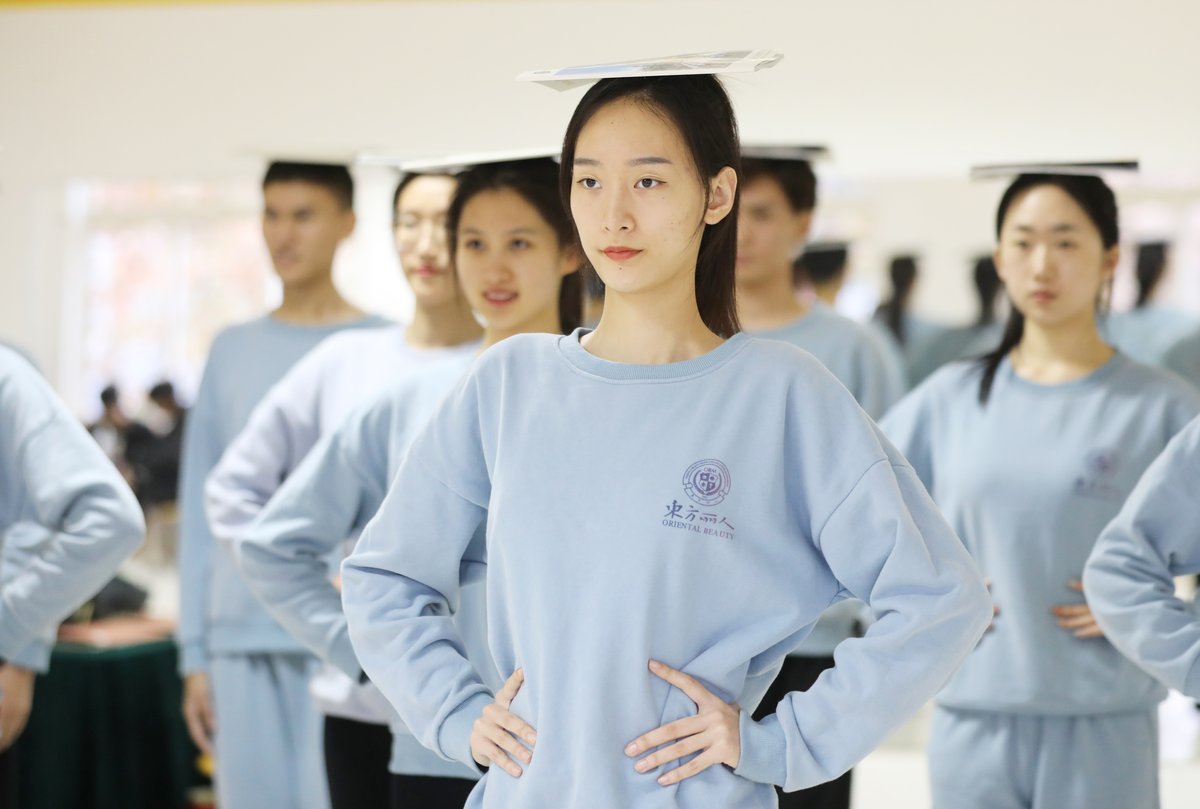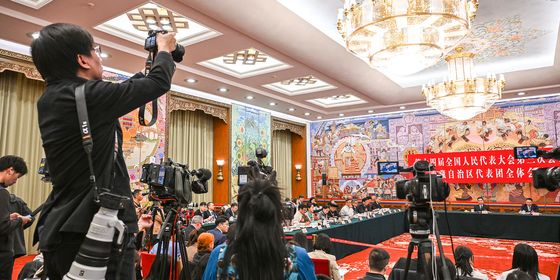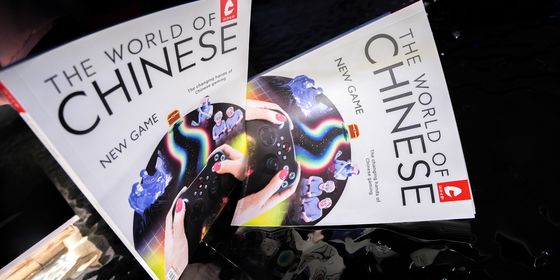From outrage against gender-based violence to significant strides for women in sciences and sports, here are the important stories in the realm of gender and feminist news this year
In October, China amended its Law on the Protection of Women’s Rights and Interests, in the first major revision of the law since 2005. It was perhaps a fitting way to draw close to a year that saw fierce debate over gender-based headlines, positive or negative, almost every month.
While we saw Chinese women making breakthroughs in traditionally male-dominated fields like sports and aerospace, they remain underrepresented in politics, while too many women still suffer at the hands of human trafficking and other gender-based violence. As the public develops more awareness of gender-based power dynamics in Chinese society, news stories are more frequently discussed in terms of systemic issues like sexual harassment and gender-based discrimination, while some of these discussions online also face increased censorship as they get more heated. TWOC has compiled a list of the year’s most significant gender-based news and developments that reflect what Chinese women achieved in 2022, as well as the challenges ahead.
Most tragic
In late January, a vlogger visiting a village outside of Xuzhou in the coastal Jiangsu province stumbled upon a thinly clad woman chained inside a shed and shivering in the winter cold. Later identified as Xiaohuamei, the woman is said to have been trafficked from Yunnan province in the southeast, was sold at least three times, and had eight children with a man surnamed Dong. The public outrage over the imprisonment and abuse of the woman was exacerbated by vague and contradictory statements by the local authorities about the woman’s identity, alleged history of mental illness, and how she arrived in Xuzhou. Although news of the incident was heavily suppressed, with the 2022 Winter Olympics taking place in Beijing around the same time, the topic generated an estimated 10 billion views on Weibo at its peak. According to the latest official statement, the woman was admitted to the local hospital and the man Dong was arrested. State broadcaster CCTV reported that six of the children, who are still underage, were being taken care of by Dong’s mother and their neighbors.
Most inspiring
Wang Yaping, the first Chinese female astronaut in history to have taken a spacewalk, set another new record in April by staying in space for 197 straight days—the longest stay in space by a Chinese female astronaut. Wang is also the second Chinese woman in space, following Liu Yang, who flew as part of the Shenzhou-9 space mission in 2012. On March 8, International Women’s Day, Wang sent a video message from onboard the orbiting Tiangong Space Station module Tianhe, calling on girls and women to “pursue the career we love.”
Biggest nationwide outcry
On June 10, a video of a man in Tangshan attempting to harass a woman who was having dinner in a restaurant with three friends, and violently assaulting the women with a group of his friends when he was rejected, started circulating online. The incident caused intense discussions online over women’s safety in public places and public awareness of sexual harassment, as mainstream media initially reported that the ringleader (identified as Chen Jizhi) was “chatting up” the woman instead of harassing her. In the days that followed, the Tangshan Public Security Bureau Lubei Branch announced that they had taken several suspects into custody, and the incident snowballed into a crackdown on organized crime. Other residents of Tangshan and other cities came forward to accuse organized gangs and corrupt local officials of abusing their power and committing various violent acts. Two of the victims spent time in intensive care. In September, Chen was sentenced to 23 years in prison and fined 320,000 yuan. The other 27 defendants (some directly involved in the assault, and some indicted for organized crime) were also sentenced to up to 11 years and fined.
Most baffling
Pear Video, a short-video website, reported in September that a female passenger on a high-speed train could not buy sanitary pads onboard and had to ask the attendant to give one to her. The woman shared her experience online, and suggested that female sanitary products be made available on board Chinese trains in the future to make journeys more “friendly” for women. Her complaint reignited the topic of “period poverty,” or the unavailability of affordable, safe sanitary products for women in many parts of China (and society’s general lack of awareness of, and unwillingness to discuss, this issue). Responses were divided this time around, with many women commenting that they had similar experiences on trains and supporting measures to sell sanitary items on board, while other netizens opposed the idea, calling pads “personal” items that women ought to prepare in advance of boarding, or expressing discomfort at them being sold next to items like snacks or playing cards. The service platform of China’s railway system, 12306, also called sanitary pads “private products” in its response to the incident, explaining they would “not normally” be sold on trains.
Legal strides
After receiving over 700,000 comments during the public feedback period, China passed the revised Law on the Protection of Women’s Rights and Interests in October. The amended law added almost 30 new revisions dealing with various issues such as gender-based discrimination in hiring and employers’ obligation to take action to prevent sexual harassment in the workplace. One landmark change is that the amended law has, for the first time in Chinese legislation, defined sexual harassment as “the form of verbal remarks, written language, images, physical behaviors, or other actions against the will of women.”
Longstanding scandal revealed
In late September, Shi Yizhi, a first-year student at the Beijing Film Academy and an online influencer with about 1.5 million followers on Weibo, alleged that popular exam-prep school founder Du Yingzhe had sexually assaulted female students under his tutelage, many of them underage, for close to 15 years. Du is the founder and principal of an influential private training school in Beijing that prepared the students for the yikao, the admissions test for arts-oriented universities and degree programs. Shi said in the post that she was harassed by Du in 2019 while attending his class, and Du would brag to her about “sleeping with hundreds of students” and that he was a “godfather in the film industry.” At least 16 other former students were inspired by Shi to come forward about their own past sufferings at the hands of Du. Under public pressure, police in Beijing’s Haidian district detained Du and the incident is under investigation.
Winning on the courts
China’s women’s basketball team were applauded nationwide for their energy and excellence after they reached the World Cup semi-finals on September 29, the first time the team had done so in 28 years. Although the team ultimately lost to the US in the final, finishing in second place in the FIBA Women’s Basketball World Cup, topics relating to their achievements drew over 350 million views on Weibo. The current team first drew public attention during the Tokyo Olympics in 2021 when they were the only Chinese team still playing in the “big three ball sports”—soccer, basketball, and volleyball. As a result of their successes, netizens have started calling for more commercial sponsorships for female sports teams and equal pay with male athletes.
Regression in representation
For the first time in 20 years, there was no female member selected for the Politburo of the Chinese Communist Party, the party’s 24-member executive leadership body, in the 20th National Congress. This was seen as a step back from previous strides made in gender equality in Chinese politics. Female participation has always been low in Chinese politics: In the past 70 years, only six women have served on the Politburo. According to South China Morning Post, of the 205 seats in the CPC Central Committee, only 11 went to women at the 20th National Congress. Sun Chunlan, the vice-premier and the sixth woman to join the Politburo in the 18th and 19th National Congress, was absent from the list of Central Committee members this time around.
















